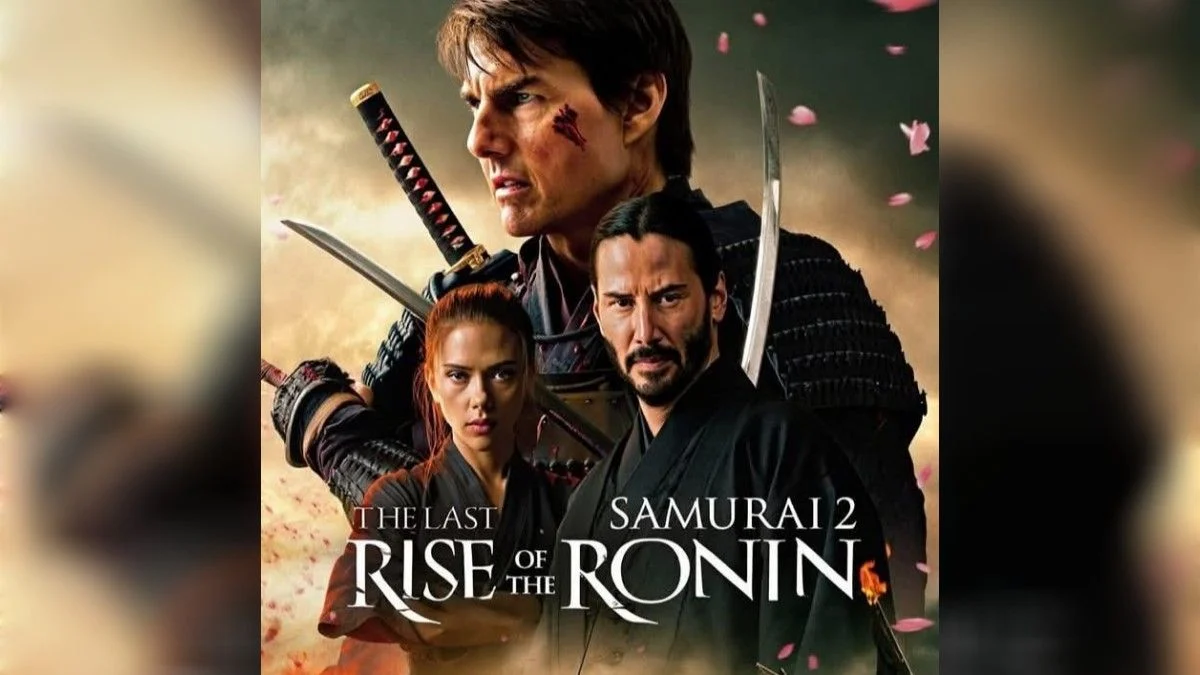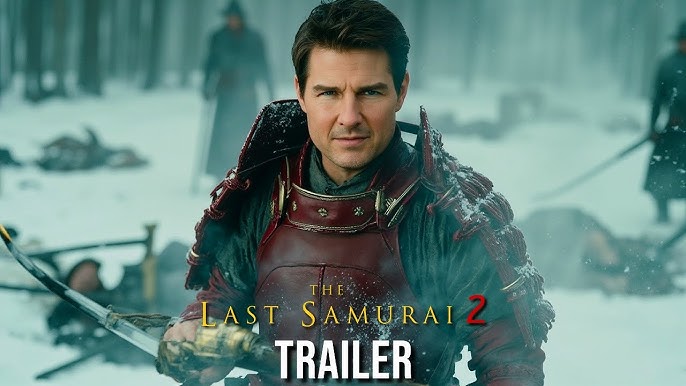The Last Samurai: Rise of the Ronin (2026)

The Last Samurai: Rise of the Ronin (2026)
Starring: Tom Cruise | Keanu Reeves | Scarlett Johansson
Set twenty years after the fall of the samurai, The Last Samurai: Rise of the Ronin (2026) plunges Japan into a time of uncertainty and strife, caught between its deep-rooted traditions and the rapid tide of modernity. The once-feared and revered samurai are no longer the dominant force they once were, but their honor and legacy are far from forgotten. The film reintroduces Nathan Algren (Tom Cruise), a man marked by the battles of his past and the internal scars that refuse to heal. Now a wandering soul, Algren is in search of peace, but peace is something Japan itself has yet to find.
Algren’s journey takes him back to the heart of Japan—a land on the precipice of war, torn apart by conflicting forces. A faction of rogue warriors, intent on restoring the samurai’s power, threatens the fragile peace that Japan has worked so hard to build. Their leader, Kenshiro (Keanu Reeves), a dark and mysterious ronin, stands at the center of this storm. With a personal vendetta tied to Algren’s past, the two warriors are bound together by fate, and their paths will soon cross in a battle that will determine the future of Japan.
As the world around them shifts from the serene landscapes of ancient temples to the bustling urban sprawl of Tokyo, a stark contrast emerges. The once-sacred code of the samurai clashes violently with the encroaching industrial world, where the elegance of the sword is met with the brutal force of guns and cannons. The once-pristine honor of the samurai is tested by the harsh realities of modern warfare, forcing both warriors to confront their own beliefs about legacy, survival, and what it means to protect their people.
The film is a deep exploration of tradition versus progress, as the ancient ways of the samurai are challenged by the advent of industrialization. The battle for Japan’s future is fought not just on the battlefield, but in the hearts and minds of its people. In this shifting landscape, the samurai’s once-unquestioned place in society is under siege, and the warriors who once lived by the code of honor find themselves fighting for survival in a world that no longer has a place for them.
Algren, now a broken man haunted by his past, returns to Japan unwillingly, but with a sense of duty that compels him to confront the forces threatening the country’s future. His return is not a triumph, but a reluctant reconciliation with the ghosts of his past. Tom Cruise brings a gritty and emotional portrayal of Algren, a man seeking redemption but unsure of what redemption means in a country on the brink of war. His character is complex—torn between his loyalty to the old ways and the realization that the world he once knew is disappearing.
Kenshiro, played by Keanu Reeves, is the film’s most intriguing character. A lone ronin, driven by a silent fury and a personal vendetta, he embodies the tragic remnants of the samurai tradition. His backstory is shrouded in mystery, and his motivations are driven by a deep personal loss that links him to Algren in ways neither fully understands at first. Keanu Reeves’ portrayal of Kenshiro is both mesmerizing and haunting, bringing a sense of deep, internalized conflict to the screen. He is a man caught between his desire for vengeance and the struggle to hold on to the ideals of honor and duty that once defined him as a warrior.
The film explores the legacy of the samurai and the toll that the passing of time takes on an entire culture. It asks the question: Can the samurai’s code of honor survive in a world that values progress over tradition? Can these warriors adapt to a new era without losing the essence of what made them great? It is a film not just about the battle for Japan’s future, but about the battle within each individual as they struggle to reconcile the past with the present.
The action in The Last Samurai: Rise of the Ronin is stunning and brutal, combining the elegance of samurai sword duels with the chaotic and violent clashes of industrial warfare. The film showcases several spectacular battles—each one a visual masterpiece, blending traditional martial arts with modern weapons. The choreography is nothing short of spectacular, with sword duels that are as graceful as they are intense. The film’s epic scale is matched only by its emotional depth, as the warriors are forced to grapple with the consequences of their actions and the sacrifices they must make in the name of survival.
At the heart of the film is a story of legacy and sacrifice. Algren and Kenshiro’s journey is one of survival, but also one of self-discovery. Both men are tied to the past in ways they can’t escape, but as they face the inevitable collapse of the samurai way of life, they must decide what they are willing to fight for. Is it the honor of their ancestors, or the survival of a new Japan? As they clash with one another, they must also confront the true meaning of sacrifice, understanding that the price of their actions may be higher than they ever anticipated.
The conclusion of the film is both thrilling and heartbreaking. It serves as the final stand for the samurai, a powerful reminder of the importance of tradition, honor, and loyalty in a world that is rapidly changing. As Algren and Kenshiro face off in an epic final battle, the film’s themes of legacy, survival, and sacrifice come to a head. The outcome is inevitable, but the journey that leads them there is one filled with pain, redemption, and the unwavering determination to hold onto something that will soon be lost to history.
The Last Samurai: Rise of the Ronin is a bold new chapter in the story of the samurai. It honors the past while embracing the complexities of the modern world, offering a gripping narrative that will resonate with audiences long after the credits roll. It is a film about legacy, sacrifice, and the unwavering will of a warrior class determined to leave its mark on history.
Rating: 9/10 – A visually stunning, emotionally charged tale that explores the clash between tradition and modernity, offering a poignant reflection on the end of an era
Related Movies:









